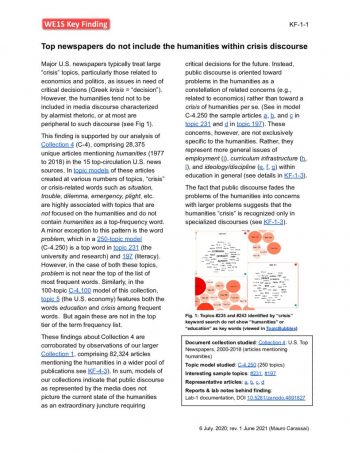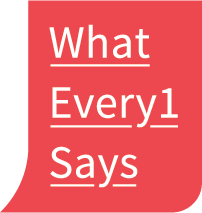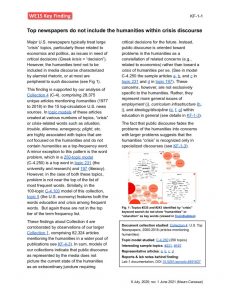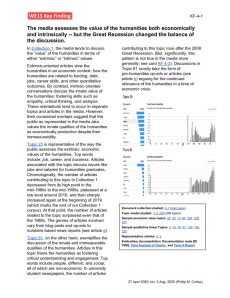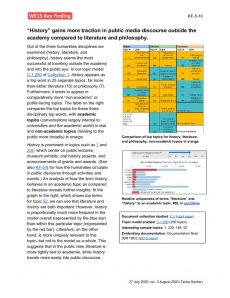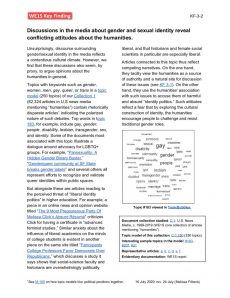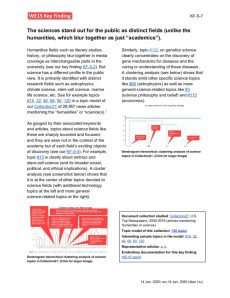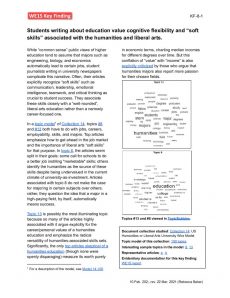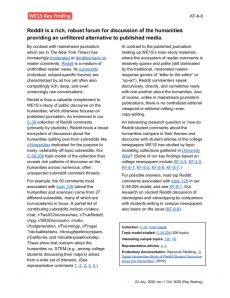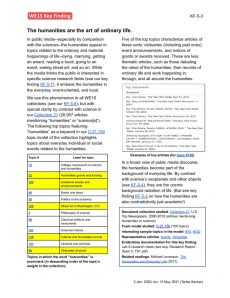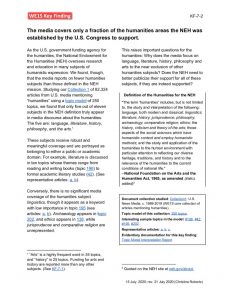WE1S presents its findings in the form of "Key Findings"—observations based on our project's big-data research on how the humanities are presented in mainstream journalistic media (wide-circulation newspapers, local newspapers, magazines, specialized news sources), online news sites, student journalism, social media (Twitter and Reddit), and other public sources. Key Findings also include some based on the surveys and focus groups we ran as case studies at two of our project’s home campuses (U. California, Santa Barbara, and U. Miami). Our research is conducted through digital humanities text-mining and modeling methods, especially topic modeling. Our case-study surveys and focus groups are "human subjects research" that complement computational "distant reading" by helping us understand our results better through on-the-ground observations of students and others grappling with the nature and value of the contemporary humanities.
These Key Findings are one-page “cards” that communicate clearly in bite-sized chunks. An important “explainability” method in data science originally inspired by documentation methods in medical and nutrition research, “cards” give essential information, examples, and evidence summaries. (See our Methods card M-1 on “cards.”) Each card ends with “Resources” that link to a “documentation deposit” holding our underlying research reports, lab notes, and other evidence.
WE1S’s Key Findings are by intention discrete and modular. But they are also inputs for more complex syntheses in our reports and other downstream or higher-level research and humanities-advocacy outputs. For example, Key Findings are components of WE1S’s Research-to-Action Toolkits, which link them to such other components also presented in “cards” form as Call-to-Action and Call-to-Communication recommendations.
